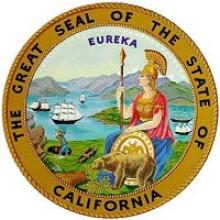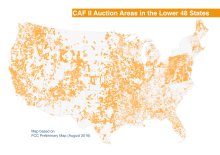California Lawmakers Pass 6/1 Mbps Smackdown For Rural Constituents
California Legislators have turned on their constituents living in rural areas who want to participate in the 21st century online economy. What began as a move in the right direction - allocating substantial resources to funding high-speed Internet infrastructure - has become another opportunity to protect big incumbents. It’s twice as nice for Frontier and AT&T, because they will be paid big bucks to meet a low Internet access bar.
Discretionary Fund
Democrat Eduardo Garcia, the main author on Assembly Bill 1665, represents the Coachella Valley, a rural area in the southern area of the state near Palm Springs. Democrat Jim Wood coauthored with eight others. Wood represents coastal areas in the northern part of the state, which was passed during the eleventh hour of the 2017 legislative session. Wood’s district and region has obtained several grants from the California Advanced Services Fund (CASF) that have helped to improve local connectivity.
The CASF is much like CAF; both programs are funded through a surcharge on revenue collected by telecommunications carriers from subscribers. Since 2007, when California authorized the CASF, the legislature has amended the rules and requirements several times. Early on, CASF awards went primarily to smaller, local companies because large corporations such as AT&T and Frontier did not pursue the grants. Now that those behemoths have their eyes on CASF grants, they’ve found a way to push out the companies who need the funds and have shown that they want to provide better services to rural Californians.
AB 1665 allocates $300 million to Internet infrastructure investment and an additional $30 million to adoption and related local programs. Policy experts have criticized the legislation on several fronts. Consultant Steve Blum told CVIndependent:
The incumbents (large corporate ISPs) including AT&T, Frontier and the California Cable and Telecommunications Association jumped in and said, ‘We want the bill to be X, Y and Z.’ … Assemblymember Eduardo Garcia took it and started adding language that reflected the desires of these cable and telephone company incumbents.




